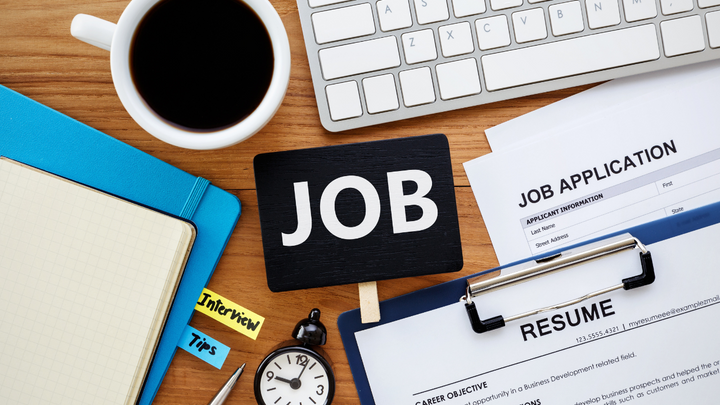Mastering the Art of Informational Interviews: A Comprehensive Guide for Job Seekers
Unlock the power of informational interviews in your job hunt! Dive into our comprehensive guide to gain industry insights, expand your network, and demonstrate initiative. Start networking smarter today!

Introduction
In the world of job hunting, informational interviews are an often overlooked yet powerful tool. They offer a unique opportunity to gain insights into your industry of interest, learn about potential job roles, and build valuable connections. This article will provide a comprehensive guide on how to effectively conduct informational interviews, helping you to unlock the potential of this networking strategy.
Understanding Informational Interviews
Before diving into the how-to, it's crucial to understand what an informational interview is and why it's beneficial. Unlike a job interview, an informational interview is a conversation you initiate for the purpose of gaining insights and advice. You're not directly asking for a job, but rather seeking to learn more about the industry, the company, or a specific role from someone currently in that field.
For example, if you're a recent graduate interested in the tech industry, you might request an informational interview with a software engineer or product manager. This conversation can provide you with a realistic view of the job, the skills required, and the industry's current trends.
The Value of Informational Interviews
Informational interviews are invaluable for several reasons. They allow you to:
- Gain industry insights: You can learn about the realities of the job and the industry that you won't find in a job description or on a company's website.
- Expand your network: By connecting with professionals in your field of interest, you're building relationships that could lead to future opportunities.
- Demonstrate initiative: Requesting and conducting an informational interview shows that you're proactive, curious, and committed to your career development.
Preparing for the Informational Interview
Identifying the Right People
The first step in conducting an informational interview is identifying the right people to talk to. Start by listing the industries, companies, or roles you're interested in. Then, use platforms like LinkedIn to find professionals in those areas. Look for individuals who are in roles you aspire to, or who work in companies or industries you're interested in.
For instance, if you're interested in marketing and admire the work of Company X, you might look for a marketing manager or director at Company X to speak with.

Crafting Your Outreach Message
Once you've identified potential interviewees, the next step is reaching out to them. Your message should be concise, professional, and respectful of their time. Explain who you are, why you're reaching out, and what you hope to learn from them. Remember, you're not asking for a job, but for insights and advice.
Here's an example of an outreach message:
Subject: Request for Informational Interview from Aspiring Marketing Professional
Dear [Name],
I hope this message finds you well. My name is [Your Name], and I'm currently exploring career opportunities in marketing. I've admired the work of Company X, particularly your recent campaign on [specific project or campaign].
I'm reaching out to see if you would be open to a brief informational interview. I'm eager to learn more about your experience in marketing, any insights you might have about the industry, and advice you might offer to someone looking to break into the field.
I understand you have a busy schedule, so I'm flexible and can work around a time that suits you best. Thank you for considering my request.
Best, [Your Name]
In the next part of the article, we will delve into how to conduct the informational interview, including the best questions to ask and how to follow up effectively.

Conducting the Informational Interview
Setting the Agenda
Once your interviewee has agreed to meet, it's important to set a clear agenda. This helps both parties know what to expect and ensures the conversation stays focused. Send a brief email outlining what you'd like to discuss. This could include their career path, the industry, and their role and responsibilities.
Preparing Your Questions
Come prepared with a list of thoughtful questions. This is your chance to gain insights that aren't readily available online. Here are a few examples:
- Can you describe a typical day in your role?
- What skills are most important in your job?
- How did you get started in this industry, and what advice would you give someone looking to enter it?
- What are the biggest challenges facing your industry right now?
- What do you wish you knew before starting in this role or industry?
Remember, the goal is not to ask for a job but to learn and build a relationship.
During the Interview
Be respectful of their time and stick to the agreed-upon duration for the interview. Start by thanking them for their time, briefly introduce yourself, and then dive into your questions. Listen attentively, take notes, and show genuine interest in their responses.
For instance, if you're speaking with a project manager at a tech company, and they mention the importance of Agile methodologies, you could ask for more details about how their team implements Agile, or what they see as the benefits and challenges of this approach.
After the Interview: Following Up
Send a Thank You Note
After the interview, send a thank you note within 24 hours. Express your gratitude for their time and the insights they shared. This is not only polite but also helps to solidify the relationship you've started to build.
Keep the Connection Alive
Don't let the relationship end with the informational interview. Keep in touch by sending relevant articles, congratulating them on professional achievements, or updating them on your career progress. This helps to keep you on their radar for any future opportunities.
Conclusion
Mastering the art of informational interviews is a powerful tool in your job hunting arsenal. By seeking advice and insights, you're not only learning about potential career paths but also building valuable relationships within your industry of interest. Remember, the key to a successful informational interview lies in preparation, respect for the other person's time, and genuine curiosity. Happy networking!




Comments ()